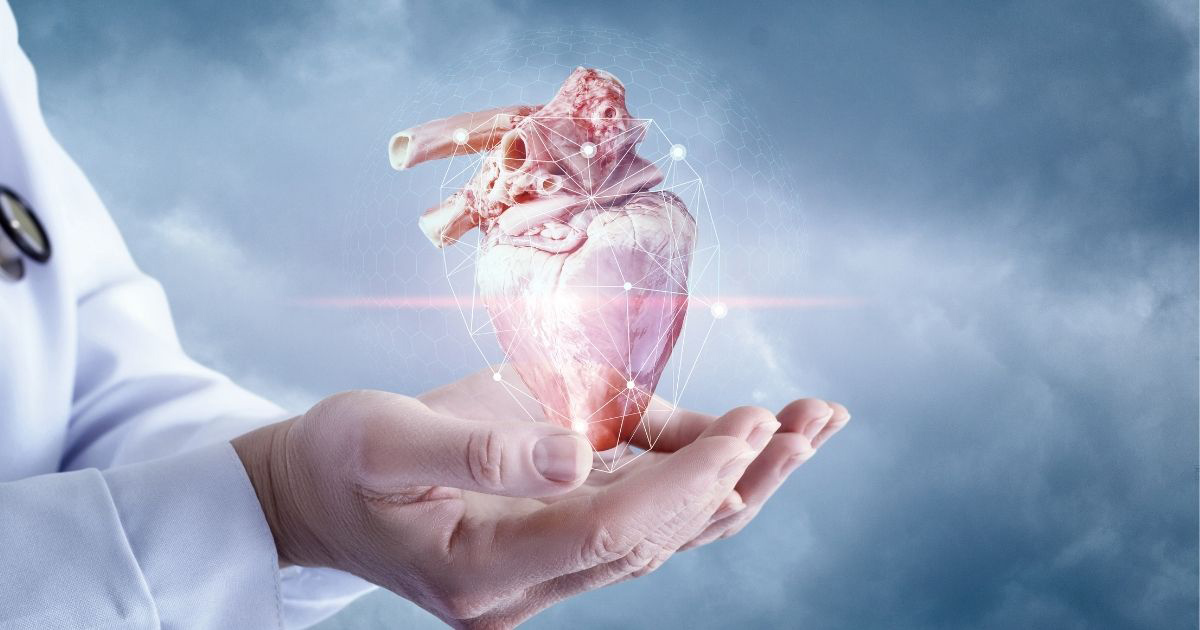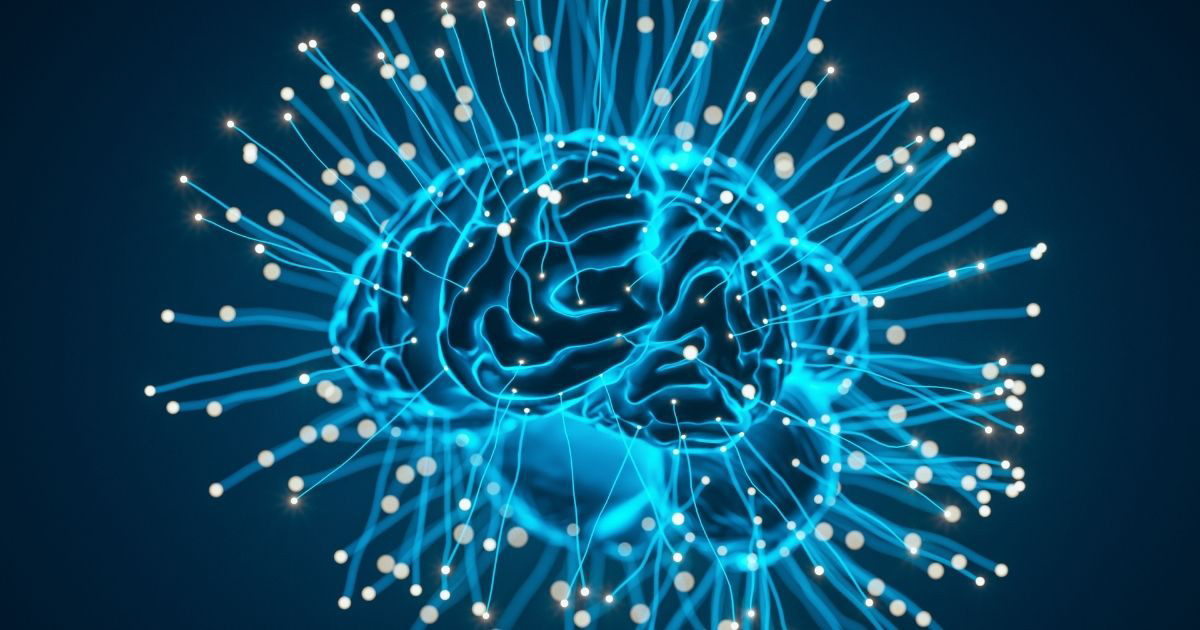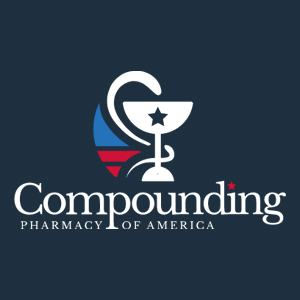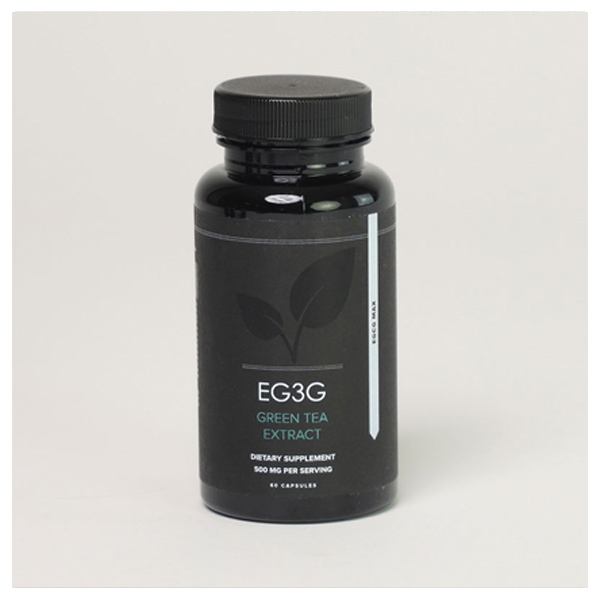
One of our favorite STAAR Labs products, EG3G, offers a multitude of benefits designed to bring calm and elevate your overall health. People have been reaping the advantages of green tea for centuries, with studies suggesting that the consumption of green tea and green tea derivatives can help with skin issues weight loss, and reduce the risks of heart disease and cancer. Before you try it for yourself, you may want to learn about the benefits it can have to your personal health regimen.
What Is EGCG Green Tea Extract?
Green tea is high in polyphenols, a micronutrient humans need due to its many health benefits. In particular, green tea boasts rich flavonoid content, a class of polyphenols that have antioxidant properties. Medically known as Epigallocatechin Gallate (EGCG), this plant-based catechin (a class of flavonoids) is a particularly potent antioxidant and may offer protection against the cellular damage caused by free radicals.

Free radicals are unstable atoms, molecules, or ions that are released during chemical reactions in the body. When their numbers get too high, these highly reactive particles can cause undesirable chemical reactions and damage your cells.
Fortunately, consuming food high in antioxidants like the catechins found in green tea can be a way to stop toxins from running rampant in your body. These catechins are available in green tea along with other natural foods like berries, seeds, and fruits. They can also be found in dietary supplements like the one produced by STAAR Labs.
What Is EGCG Green Tea Extract Good For?
EGCG green tea extract has been found to significantly benefit overall well-being when added to an active health and fitness regimen. Due to the abundant polyphenols in green tea, the extract has several anti-inflammatory, antiviral, and even anti-cancer properties.
Anti-Inflammatory
EGCG green tea extract has the potential to suppress active inflammation by downsizing the expression of certain enzymes and compounds in the body. This may lower blood pressure and bad cholesterol, which could, in turn, help lower one’s risk of heart disease. Less inflammation in one’s body can also sometimes mean less pain, which would be beneficial in cases of chronic pain conditions.
Anti-Viral
Epigallocatechin Gallate has been shown to help the body fight against several viruses. The catechins in EGCG green tea extract have the potential to inhibit certain viruses, including RNA viruses, DNA viruses, arbovirus, coronavirus, and enterovirus.
Camellia sinensis, or the tea plant where green tea is derived, has been proven to have the potential for several anti-infective, antiviral, and antiproliferative properties and may have the ability to act as a potential agent for several viral diseases.
Anti-Cancer
The polyphenols in green tea and EGCG may boast anti-cancer properties that can help reduce the chances of tumor growth. Additionally, the effects of green tea extract consumption may help protect against certain carcinogens. Supplement products may help prevent cancers, including breast, lung, prostate, liver, esophageal, and colorectal cancer.
What Are the Health Benefits of Green Tea Extract?
In addition to its potential anti-cancer, antiviral, and anti-inflammatory properties, green tea extract may offer several other health benefits when added to an overall health regimen. These include weight loss, heart health, skin conditions, lowered cholesterol, brain function, and overall mood enhancement.
Weight Loss
The catechin Epigallocatechin Gallate found in green tea extract may help folks with obesity lose weight. One study notes that consuming two cups of green tea per day might be associated with a lower body fat content and the ability to lose weight. Additionally, studies have shown that consuming 80-300 mg of caffeine together with 100-460 mg of EGCG for a time period of at least 12 weeks can be linked to weight loss and the reduction of body fat.
Despite these studies, it is important to remember that ingesting green tea extract does not always significantly change a body’s metabolism and should be added to an already existing health regimen for consistent benefits.

Heart Health
Due to its inflammatory properties, Epigallocatechin Gallate (EGCG) may help reduce cholesterol, high blood pressure, and the accumulation of plaque in blood vessels, which can assist in overall heart health. Studies show a reduction in cholesterol in patients taking green tea extract. The consumption of EGCG may also help lower the risk of heart disease, heart failure, ischemic stroke, and hypertension.
Skin Conditions
Because green tea extract has many anti-inflammatory properties, it may be an added benefit for obtaining healthier skin. When used as part of a skincare routine, EGCG may offer better microcirculation in your skin, adding to the overall well-being of the largest organ in your body.
It may also assist with reducing the signs of aging, soothing redness and swelling, diminishing cellulite, exfoliating, decreasing blackheads, ridding your skin of bacteria, dirt, and dead cells, and repairing damage.
Lower Cholesterol
The polyphenols found in green tea extract may have the potential to help in myriad ways when it comes to cholesterol. Certain studies note that the consumption of green tea extract can significantly reduce the overall total cholesterol and the low-density lipoprotein that occurs in individuals with obesity, individuals of moderate weight, or those considered overweight.
It may also help increase HDL cholesterol, a type of “good” cholesterol that helps remove more harmful forms of cholesterol from the bloodstream. Green tea extract may also help prevent cholesterol from being absorbed by the intestines.
Stroke Risk
According to a study published by the American Heart Association, green tea extract may help reduce stroke risk. This is due to its ability to break down plaque in blood vessels that could lead to future strokes.
Working Memory
The EGCG (epigallocatechin gallate) benefits of green tea extract may also help improve cognition, especially memory and executive function. As EGCG contains certain amino acids, it can also have an anti-stress property that can assist in slowing the aging of the brain itself. Additionally, because of its anti-inflammatory properties, it may help those with spinal cord injuries.

Alzheimer’s Disease
According to a study done in 2016, there is evidence to support the conjecture that green tea extract may reduce the risk of dementia and Alzheimer’s disease. This might be because of the neuroprotective effects EGCG demonstrates, such as anti-inflammatory or anti-oxidative effects.
Multiple Sclerosis
Multiple sclerosis, or MS, is a condition of a chronic nature that attacks the body’s central nervous system and negatively affects the communication between the brain and the neurons. Symptoms of MS might include chronic pain, poor coordination, and chronic fatigue. Studies show that there may be a correlation between taking EGCG and reduced MS relapse events.
Overall Mood
Regular consumption of green tea extract has the potential to increase overall mood and protect against certain depressive symptoms. Some research suggests that taking 300 mg of EGCG on a daily basis may increase overall calmness and reduce stress. However, achieving this amount of EGCG through tea alone can prove difficult, which is why taking it in capsule form can be more effective.
Additional Benefits
Green tea extract may carry other potential health benefits.
EGCG supplements could help with other conditions, including:
- Addressing Type 2 Diabetes
- Reduction in skin aging
- Treatment for genital warts
- Preventing tooth decay and cavities
- Promoting the healing of wounds
- Improving pain due to osteoarthritis
- Reducing the effects of allergies
How Does Epigallocatechin Gallate Help Your Body Burn Fat?
Epigallocatechin Gallate (EGCG), the main antioxidant found in green tea extract, may work to boost weight loss by increasing certain fat-burning hormone levels in your body, like norepinephrine. Higher levels of these hormones can increase exercise performance, which, in turn, can help your body burn excess fat. It can also help boost metabolism overall, lending aid to your body’s natural ability to burn fat.

In order to burn fat, your body must first move the fat to your bloodstream by breaking it down at the cellular level, which may be aided by EGCG supplements. Additionally, Epigallocatechin Gallate may be helpful in reducing appetite, which could assist you in ingesting fewer calories with minimal effort.
Is it Safe to Take EGCG Daily?
In general terms, it is safe to ingest EGCG on a daily basis.
To ensure EGCG (epigallocatechin gallate) safety, it is wise to speak with a Compounding Pharmacy of America pharmacist to get their thoughts on how best to add green tea extract into your health regimen. It is also important to keep in mind that drinking sweetened green tea is not a good way to tap into the benefits of EGCG (epigallocatechin gallate), as added sugar can cause issues like an increased risk for diabetes. Natural food sources or safe supplements are ideal.
EGCG (Epigallocatechin Gallate) Dosage
Although EGCG has been studied for years and taken by humans for centuries, the effects and studies are still quite varied. This can make it difficult to nail down a specific optimal dosage for each person. According to the National Institute of Health and the National Center for Complementary and Integrative Health, it is safe to consume up to 8 cups of green tea daily or 1,500 mg of Epigallocatechin Gallate (EGCG).
EGCG FAQs
While green tea is a relatively popular beverage, it is natural to want to learn more about the specialty compounds found in green tea and supplements like EG3G.
Discover the Health Benefits of EG3G for Yourself
At Compounding Pharmacy of America, your health and the unique needs your body may have are important to us. We strive to offer professional services and advice while offering a diverse supply of wellness products to our customers. We are LegitScript Certified and accredited by the Pharmacy Compounding Accreditation Board, or the PCAB.
Green tea extract has several health benefits and can help with various health conditions, including type 2 diabetes, weight loss and management, and inflammation conditions. Some research also shows its benefits to cardiovascular and brain health. Taking this supplement in capsule form is a quick and effective way avoid overdo drinking copious amounts of tea to ensure your body is receiving the adequate amount of EGCG it needs to reap benefits.
The pharmacists at Compounding Pharmacy of America are here to provide the assistance you need and answer all your questions about adding a product like EG3G EGCG extract to your health regime. Follow our blog or shop our online wellness shop, and let us help you become a healthier you.
Resource List:
- Bernatoniene, J., & Kopustinskiene, D. M. (2018). The Role of Catechins in Cellular Responses to Oxidative Stress. Molecules (Basel, Switzerland), 23(4), 965. https://doi.org/10.3390/molecules23040965
- Lambert, J. D., & Elias, R. J. (2010). The antioxidant and pro-oxidant activities of green tea polyphenols: A role in cancer prevention. Archives of Biochemistry and Biophysics, 501(1), 65–72. https://doi.org/10.1016/j.abb.2010.06.013
- Wang, Y.-Q., Li, Q.-S., Zheng, X.-Q., Lu, J.-L., & Liang, Y.-R. (2021). Antiviral Effects of Green Tea EGCG and Its Potential Application against COVID-19. Molecules, 26(13), 3962. https://doi.org/10.3390/molecules26133962
- Chen, B.-H., Hsieh, C.-H., Tsai, S.-Y., Wang, C.-Y., & Wang, C.-C. (2020). Anticancer effects of epigallocatechin-3-gallate nanoemulsion on lung cancer cells through the activation of AMP-activated protein kinase signaling pathway. Scientific Reports, 10(1), 5163. https://doi.org/10.1038/s41598-020-62136-2
- Vázquez Cisneros, L. C., López-Uriarte, P., López-Espinoza, A., Navarro Meza, M., Espinoza-Gallardo, A. C., & Guzmán Aburto, M. B. (2017). Effects of green tea and its epigallocatechin (EGCG) content on body weight and fat mass in humans: a systematic review. Nutricion Hospitalaria, 34(3), 731–737. https://doi.org/10.20960/nh.753
- Jówko, E. (2015). Green Tea Catechins and Sport Performance (M. Lamprecht, Ed.). PubMed; CRC Press/Taylor & Francis. https://www.ncbi.nlm.nih.gov/books/NBK299060/
- Xu, R., Yang, K., Li, S., Dai, M., & Chen, G. (2020). Effect of green tea consumption on blood lipids: a systematic review and meta-analysis of randomized controlled trials. Nutrition Journal, 19(1). https://doi.org/10.1186/s12937-020-00557-5
- Cui, C.-J., Jin, J.-L., Guo, L.-N., Sun, J., Wu, N.-Q., Guo, Y.-L., Liu, G., Dong, Q., & Li, J.-J. (2020). Beneficial impact of epigallocatechingallate on LDL-C through PCSK9/LDLR pathway by blocking HNF1α and activating FoxO3a. Journal of Translational Medicine, 18(1). https://doi.org/10.1186/s12967-020-02362-4
- Teramoto, M., Muraki, I., Yamagishi, K., Tamakoshi, A., & Iso, H. (2021). Green Tea and Coffee Consumption and All-Cause Mortality Among Persons With and Without Stroke or Myocardial Infarction. Stroke, 52(3), 957–965. https://doi.org/10.1161/strokeaha.120.032273
- Mostafa, M. D., ElKomy, M. A., Othman, A. I., Amer, M. E., & El-Missiry, M. A. (2022). Epigallocatechin-3-gallate Enhances Cognitive and Memory Performance and Protects Against Brain Injury in Methionine-induced Hyperhomocysteinemia Through Interdependent Molecular Pathways. Neurotoxicity Research, 40(6), 2103–2116. https://doi.org/10.1007/s12640-022-00605-4
- Kakutani, S., Watanabe, H., & Murayama, N. (2019). Green Tea Intake and Risks for Dementia, Alzheimer’s Disease, Mild Cognitive Impairment, and Cognitive Impairment: A Systematic Review. Nutrients, 11(5), 1165. https://doi.org/10.3390/nu11051165
- Bellmann-Strobl, J., Paul, F., Wuerfel, J., Dörr, J., Infante-Duarte, C., Heidrich, E., Körtgen, B., Brandt, A., Pfüller, C., Radbruch, H., Rust, R., Siffrin, V., Aktas, O., Heesen, C., Faiss, J., Hoffmann, F., Lorenz, M., Zimmermann, B., Groppa, S., & Wernecke, K.-D. (2021). Epigallocatechin Gallate in Relapsing-Remitting Multiple Sclerosis. Neurology - Neuroimmunology Neuroinflammation, 8(3), e981. https://doi.org/10.1212/nxi.0000000000000981
- Dietz, C., & Dekker, M. (2017). Effect of Green Tea Phytochemicals on Mood and Cognition. Current Pharmaceutical Design, 23(19), 2876–2905. https://doi.org/10.2174/1381612823666170105151800
- Jurgens, T., & Whelan, A. M. (2014). Can green tea preparations help with weight loss? Canadian Pharmacists Journal : CPJ, 147(3), 159–160. https://doi.org/10.1177/1715163514528668
- National Center for Complementary and Integrative Health. (2020, October). Green Tea. NCCIH. https://www.nccih.nih.gov/health/green-tea
- Takahashi, M., Ozaki, M., Tsubosaka, M., Kim, H.-K., Sasaki, H., Matsui, Y., Hibi, M., Osaki, N., Miyashita, M., & Shibata, S. (2020). Effects of Timing of Acute and Consecutive Catechin Ingestion on Postprandial Glucose Metabolism in Mice and Humans. Nutrients, 12(2), 565. https://doi.org/10.3390/nu12020565

Compounding Pharmacy of America is committed to delivering reliable, accurate, and actionable health information to empower you on your wellness journey. Our content is created and reviewed by a dedicated team of professionals, including experienced writers and licensed healthcare experts.
Learn More About Compounding Pharmacy of America Editorial Team






 Subscribe to Our Newsletter
Subscribe to Our Newsletter
